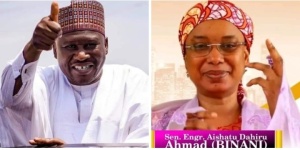Silvio Berlusconi, the charismatic media tycoon who held the position of Italy’s longest-serving postwar prime minister, has passed away at the age of 86, as reported by Corriere della Sera.
Berlusconi’s political career was marked by controversy, sex scandals, and allegations of corruption that often overshadowed his achievements. Despite the challenges, he remained a prominent figure in Italian politics for many years.
On Friday, Berlusconi was admitted to a hospital in Milan, only three weeks after being discharged from his previous treatment. His health had been a concern due to a history of heart-related issues, which included undergoing a valve replacement surgery in 2016. Additionally, in 2020, he faced a lung infection after contracting Covid-19, requiring hospitalization.
Throughout his tenure as prime minister, Berlusconi was known for his flamboyant personality, business acumen, and media empire. He founded the Forza Italia party in 1994, which became a significant force in Italian politics. Berlusconi served as prime minister for a total of nine years, with three non-consecutive terms, and his tenure was characterized by both political achievements and controversies.
Despite his political successes, including economic reforms and infrastructure projects, Berlusconi faced numerous legal battles. He was tried for various charges, including tax fraud, bribery, and illicit relationship with an underage prostitute. These scandals often overshadowed his political agenda and contributed to his polarizing image.
Silvio Berlusconi’s death marks the end of an era in Italian politics, leaving behind a complex legacy. While he was admired by some for his entrepreneurial spirit and ability to connect with the public, others criticized him for his controversial actions and perceived conflicts of interest.
As Italy reflects on Berlusconi’s passing, the nation will remember him as a significant figure who left an indelible mark on Italian politics and the media landscape. His contributions, both positive and controversial, have shaped the country’s political discourse and will continue to be discussed for years to come.










